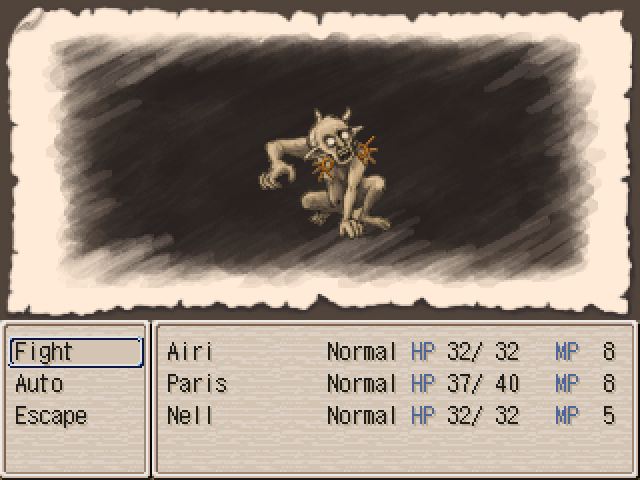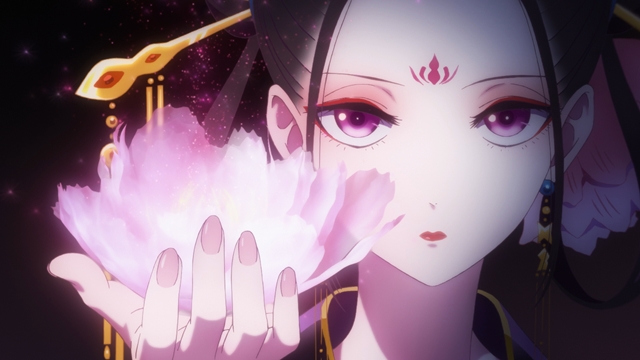#INTERVIEW: After 13 Years, Indie RPG Masterpiece Ruina is Finally Available in English
“#INTERVIEW: After 13 Years, Indie RPG Masterpiece Ruina is Finally Available in English”
All screenshots of Ruina: Fairy Tale of the Forgotten Ruins taken by author
This article was made possible through the invaluable contributions of translators Dink and bool, and further aided by context generously provided by writer, translator, and RPG Maker scene dweller Kastel (@kastelwrites). Sections from their answers were excerpted for this piece and edited for clarity and content.
Last year, at the start of the pandemic, a lapsed member of the RPG Maker community known as Dink stumbled across a screenshot while trawling Japanese free game websites: a black obelisk standing in the midst of ruins. “This is going to make me sound like I've been huffing paint, but this image spoke to something quite visceral for me — like I'd been waiting to find this game. Something about the sepia tones, the light and shadows, the elegance of its very archetype. I knew I had to play it.” Dink had stumbled across Ruina: Haitou no Monogatari (Fairy Tale of the Forgotten Ruins), one of the most acclaimed free RPGs ever made in Japan. Released in the antiquated RPG Maker 2000 engine in 2008 by developer Shoukichi Karekusa, it retains a strong cult following and has even been translated into Chinese. Yet unlike its RPG Maker siblings Yume Nikki and Ib, Ruina is practically unknown in English-speaking countries. Dink decided to change that. “Once I realized that it had yet to be translated into English,” he said, “it was like I’d become possessed.”
Ruina is unique. A role-playing game that takes direct influence from tabletop games and gamebooks, it boldly defies conventions established by classic console role-playing games like Dragon Quest and Final Fantasy. Rather than controlling the main character across a top-down map, the player slowly uncovers a hand-illustrated map of nodes. Survival in the dungeon requires the use of ropes, pickaxes, and oil for your lantern, resources that are all expendable. Your party members are valuable not only for their combat skills but for their out-of-combat abilities: thieving, sneaking, even swimming. Most of all, Ruina allows for choice and consequence, a phenomenon far more common in western RPGs than Japanese RPGs. Say you stumble across treasure in a dungeon, but are ambushed by thieves who want the treasure for themselves. Do you give the treasure to the thieves? Stand your ground? Or attack the thieves before they can do the same to you? Since your ability to save in the dungeon is heavily rationed, you may find yourself having to choose between restarting a save or living with the messy outcomes of your choices.
There’s something to Ruina that grounds it in the Japanese RPG tradition, rather than a straightforward riff on Wizardry or Might & Magic. Those earlier games gave you several choices as to building your party, but little in the way of story or character. Ruina is a far more curated experience. On starting the game, you’re offered four “backgrounds” that align you with certain other characters, just one year before Dragon Age: Origins would pull a similar trick. Rather than being given the full freedom to explore a sprawling world, your options are limited to navigating a single, contained dungeon. The characters available to be recruited into your party have defined personalities and quirks — some are already good friends of yours, others are insufferable, and still others have significant flaws that speak to the kind of person they are versus their gameplay function. These are NPCs out of the Baldur’s Gate school, given the illusion of life, rather than the team of personalized murderers you’d recruit in an Etrian Odyssey game.
Very little else in the Japanese games scene is like Ruina. You could draw comparisons with games like Unlimited Saga and Scarlet Grace, representing the legacy of controversial SQUARE ENIX auteur Akitoshi Kawazu. You could similarly connect Ruina with Yasumi Matsuda’s experimental Crimson Shroud, which takes influence from tabletop to the point that it has the player rolling dice in-game. But Ruina is more accessible and polished than a Kawazu game, and far more fleshed out than Crimson Shroud. Even Etrian Odyssey, with its comparatively barebones story and characters, doesn’t quite compare. Ruina stands alone in the Japanese free games community, a legendary title that people respect but don’t fully understand how to replicate.
A few days ago I reached out to Kastel, an academic, writer, and translator who is very familiar with Japan’s RPG Maker scene, about where Ruina fit in Japan’s wider field of indie games. “I know many people in the furige (free game) scene who love the game to death,” they said. “But they also found it to be a hard sell due to its unique, almost western take on the scene. The fact that the game is even this popular speaks to something.” Despite its crunchy mechanics and niche inspirations, the game is popular enough to have spawned light novels, an honor not unique to it (other RPG Maker games have accomplished the same) but certainly significant. Kastel drew a comparison between Ruina and Darkest Dungeon, another weird and uncompromising game that draws from both Japanese and western RPGs. “Ruina is sorta different from everything, but you also see dungeon crawlers get inspired by it,” they said. “Not all games take direct inspiration, but you can’t help but see a little bit of Ruina here and there.”
So why did it take so long for anybody to translate Ruina? Dink isn’t the only person to try his hand at translating it into English; just last fall, another forum dweller placed an ad recruiting a translation team to tackle the game. The unfortunate reality is that translating text within the RPG Maker engine into English requires intensive and repetitive labor. “There’ve been tools developed by vgperson [a prominent translator of RPG Maker games] for RPG Maker 2000 and some other machine translation tools for newer games, but they all remain difficult to use for translators,” Kastel says. “The way games are scripted uses events inside the map and developers rarely name them. So not only do you need to edit it via the appropriate RPG Maker engine, but you also need to go through each event contextless unless the creator actually notes things down.” So, the enterprising Ruina translator doesn’t just need to translate all the text in the game into English. It isn’t even a question of whether or not to manually edit the game’s many pictures and custom menus into English by hand. It’s the sheer difficulty of navigating between thousands of (often poorly labeled) events and variables in the RPG Maker engine, ensuring not to introduce any new bugs or errors in the process, while also finding the time to do all of the above.

Dink was assisted by a friend of his named bool, who played through the game alongside the translation process and gave invaluable advice and fixes. “Uncovering the mystery in the game's story sort of ran parallel with the translation of the game itself,” bool says. “As the story progressed, the characters would decipher and learn more about the lore of the eponymous ruins within the game, and as the translation progressed, the same held true for us. It really captivated me to be a part of this process, and I started to look forward to each new area that I could explore and each new morsel of the story I could understand.”
Without bool’s efforts, it might have taken far longer to put together something workable. As it was, it took four exhausting months. “I worked long hours — 12+ hours a day, 6, sometimes 7 days a week on top of my day job — and very rarely used my free time on anything else,” Dink says. “I did manually input the text in RPG Maker 2000, which has raised some eyebrows because there are some very nice tools available for game translation that would have saved me a lot of time. However, a huge advantage of working directly in the editor is being able to see the game more or less as it appears to players. A Notepad file streamlines the basic translation process, but it also heavily obscures context, whereas the editor allows you to see what switches and variables are being used, what music is being played, and sometimes even helpful creator comments, all in the same relative order you'd experience it from within the game.” Dink had one more secret weapon up his sleeve: the experience of working with the RPG Maker engine as an adolescent. RPG Maker has a reputation of being a tool designed to churn out Dragon Quest clones with ease; but nobody knows the intense difficulty of forcing the engine to do something, anything, like a former RPG Maker developer does.
The English version of Ruina, as it currently exists, is a workable but inevitably compromised version of the game. Running the game requires installing the Japanese RTP pack of visual and audio resources for RPG Maker to function, along with the use of the EasyRPG player to provide English-language player name entry. There’s the matter of the custom menus, as well. Several of the menus have been replaced with functional English equivalents, but by Dink's own admission they could use an expert's attention to better compare to the original. Other pictures, such as place name displays, have yet to be replaced by English-language equivalents at all. And the strict character limits of RPG Maker 2000 led to some creative truncating when translating from Japanese to English, especially with item and skill descriptions.
But the existence of an English-language Ruina, one that renders the whole game playable from beginning to end with a readable script, is a miracle. Speaking for myself, I started the long process of learning Japanese two years ago in part so that I could one day play this game, never expecting there might one day be an alternative. Others in the Japanese RPG Maker scene, knowing the brutal difficulty of translating a game made in the earlier engines, were shocked that a game of Ruina’s complexity and length was successfully translated at all. Speaking for themselves, Dink and bool insist that their own story doesn’t matter much. What matters is the quality of the original game and the hard work developer Shoukichi Karekusa put into its creation. Anything else is an addendum, another version of the game that — while it cannot ever be the original — might at least make something resembling that original experience accessible to others.
Frankly speaking, I think there’s something to that. The “true” version of Ruina will always exist in its original form, released for free by Karekusa in 2008. It stands as the defining work of a creator who sought to create a unique experience combining the appeal of console and tabletop roleplaying games, with no concessions to market sensibilities. A creator who not only released their baby on the internet for free, but insisted that a game like Ruina must always and ever be free. An austere monolith, it stands side by side with Yume Nikki, Ib, and even Cave Story as one of the great works to come out of Japan’s independent scene. Now any English speaker can pick up and play this new version of Ruina, and learn what that monolith is and where it leads to.
You can download the English translation of Ruina here. For those who want to learn more about the Japanese RPG Maker scene, I recommend checking out Kastel’s page here.
Are you a Ruina fan? Let us know in the comments!
Adam W is a Features Writer at Crunchyroll. When he is not working through exercises in Wanikani, he sporadically contributes with a loose group of friends to a blog called Isn't it Electrifying? You can find him on Twitter at:@wendeego
Do you love writing? Do you love anime? If you have an idea for a feature, pitch it to Crunchyroll Features!
If you liked the article, do not forget to share it with your friends. Follow us on Google News too, click on the star and choose us from your favorites.
For forums sites go to Forum.BuradaBiliyorum.Com
If you want to read more anime-manga articles, you can visit our anime-manga category.





